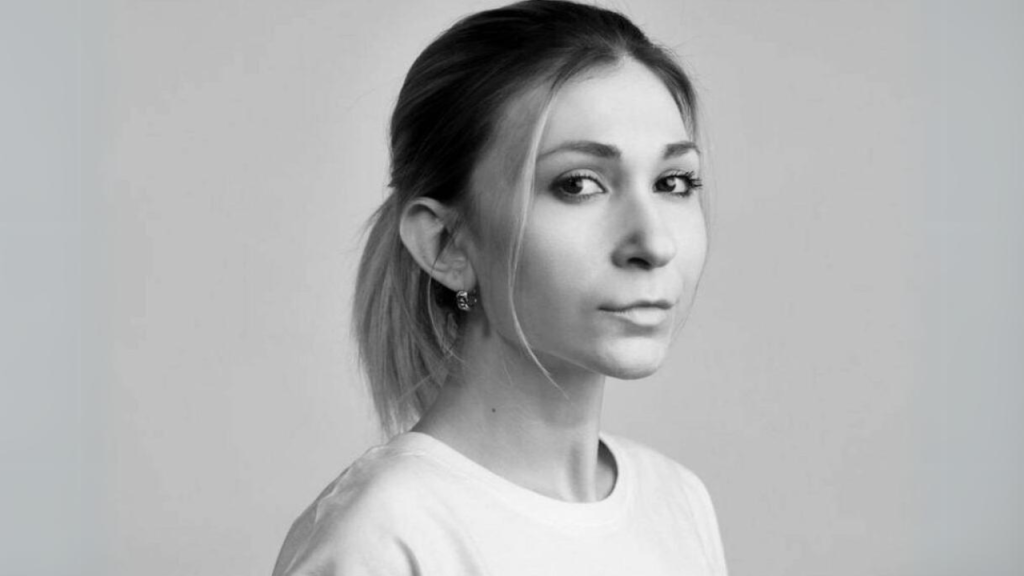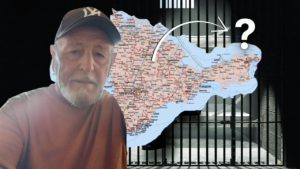Journalist Victoria Roshchyna Dies in Captivity while in One of the Most Brutal Detention Centers of Russia

Former captives speak about Taganrog Pre-Trial Detention Center No. 2 as a most brutal torture camp. This is where journalist Victoria Roshchyna was kept. Her death was announced yesterday, October 10.
Journalist Victoria Roshchyna was detained by Russians twice. The first time was in Berdiansk in March 2022. At that time, she wrote a series of reports for Ukrainian media about life within the occupied territories. Ten days after her detention, the journalist was released. She was forced to record a video message stating that photos of Russian military equipment had been found on her phone and that she had no complaints against the Russian military.
Then Roshchyna left for the territory controlled by Ukraine, but in July 2023, she returned to the occupied territories. The general public learned about disappearance of the journalist only in October. Then the International Women’s Media Foundation reported that Victoria Roshchyna had disappeared on August 3, 2023. She was probably detained in Donetsk or Zaporizhia Oblasts. The purpose of her trip to the occupied territories is unknown, but most likely it is related to her journalistic activities.

Victoria Roshchyna, Ukrainian journalist. Photo: Ukrainska Pravda
Only this year, April 22, Victoria’s father Volodymyr Roshchyn received an official letter from the Defense Ministry of the Russian Federation, saying that the journalist had been detained.
Tetiana Katrychenko, the Executive Director of the Media Initiative for Human Rights, reported on her Facebook page that Victoria Roshchyn had been held in at least two prisons: Penal Colony No. 77 in Berdiansk and Pre-Trial Detention Center No. 2 in Taganrog. “Since the first months of the full-scale invasion, Russians have been using both facilities to hold Ukrainian soldiers and civilians, in particular women,” said Tetiana Katrychenko.
Tetiana also said, “Viktoria was held in Taganrog at least from May to September 2024. In a solitary confinement cell. On the eve of the exchange on September 13, 2024, Roshchyna and at least one other woman from Melitopol were taken out of Taganrog.”
Greek Catholic priests Ivan Levytskyi and Bohdan Heleta were returned to Ukraine as a result of an exchange on June 25, 2024. They also had been held in Penal Colony No. 77 in Berdiansk. The MIHR has information that prisoners have been tortured with electric shock at this detention facility.
But Taganrog Pre-Trial Detention Center No. 2, located in Rostov Oblast, is considered by former prisoners of war to be one of the most brutal detention centers in Russia. It was here that the defenders of Mariupol had been transported since April 2022.
According to released prisoners of war, guards of the Taganrog detention center use three main torture devices — a rubber truncheon, a wooden hammer and electric shockers. Prisoners are beaten during reception, daily searches and interrogations. During interrogations, prisoners are forced to confess to crimes they have not committed.

Pre-Trial Detention Center No. 2, 175 Lenin Str., Taganrog
“There was a man kept together with me in the cell. He was taken to interrogations every day. Abkhazians said that beatings would continue until he signed a confession. Officers drowned him in water, put a rag on his face and poured water on him. “Eventually he signed everything,” says one of the released soldiers, whose name is not disclosed for security reasons.
“We heard screams all the time – someone was always beaten somewhere. Sometimes constant screams could be heard for 15-20 minutes, then if a prisoner was unable to stand, they threw him into the cell, almost unconscious,” says another former prisoner of war.
According to prisoners, leadership of the pre-trial detention center changed in September 2022. The reason was two deaths of prisoners of war.
After that, some noted that the conditions had improved. However, they did not stop torturing captives. There was only one difference – a doctor was present in a torture chamber: when a prisoner felt bad, he would give him a pill.
According to the Russian Ministry of Defense, Victoria Roshchyna died on September 19, 2024. The causes and circumstances still remain to be determined. The death of the Ukrainian journalist was also confirmed by the Coordination Headquarters for the Treatment of Prisoners of War. It is known that she previously started a hunger strike due to inhuman treatment.
Andriy Yusov, the representative of the Defence Intelligence of the Ministry of Defence of Ukraine, commented to the Suspilne news platform that Roshchyna had been on the exchange list. “Her release was approved, and currently the latest information is that she was transferred to the Lefortovo Pre-Trial Detention Center in order to arrange her return to home,” Andriy Yusov said.
Former civilian prisoner of the DPR, volunteer and public figure Liudmyla Huseinova wrote on her Facebook page that the journalist’s body was expected to be returned to Ukraine during the next exchange of bodies.
The Media Initiative for Human Rights expresses its sincere condolences to the family of Victoria Roshchyna. She made an invaluable contribution to highlighting the crimes committed by the Russian Federation within the occupied territories of Ukraine. Victoria cooperated with numerous Ukrainian media and won the award for Courage in Journalism.
Let us recall that over 30 Ukrainian media professionals are currently held in Russian captivity.






